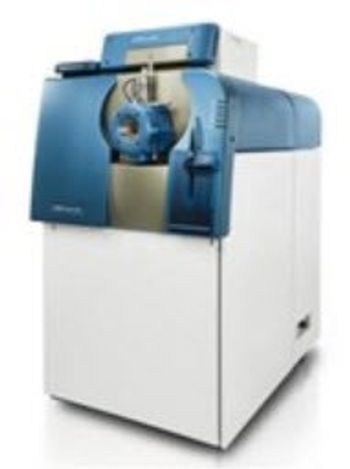
SCIEX, a global leader in life science analytical technologies, today announced their latest proteomics solution advancements, which address the challenges of throughput, reproducibility and robustness faced by Academic Labs working to advance precision medicine. The sample sets involved in this research are getting larger and increasingly unmanageable through traditional proteomics research approaches, and significant workflow improvements are required to scale omics analysis. SCIEX has now advanced their platforms to industrialized performance levels, adding new tools for customers to analyze larger sample sets, faster and with more confidence.
The SCIEX Next-Generation Proteomics (NGP) platform offers solutions for large-scale quantitative proteomics with technologies such as the TripleTOF® 6600 system with SWATH® 2.0 Acquisition, to perform quantitative proteomics research by solving the missing data problem, enhancing data processing and results visualization, with retrospective analysis, and OneOmics™ cloud computing. Bringing these technologies together has set the standard for truly comprehensive data with the most confident and reproducible protein quant for thousands of proteins in hundreds of samples.
To advance to the scale required for Precision Medicine studies, researchers need to understand disease at the molecular level, and they need to generate comprehensive, reproducible biological results over large sample cohorts. Often this work involves complex samples preparation, as researchers compare healthy and diseased samples in pursuit of potential biomarkers, which could be genes, proteins or metabolites. This work requires higher levels of reproducibility and greater sample throughput than typically associated with basic omics research.
Additions to the SCIEX NGP platform for industrialized proteomics includes:
- New sample prep automation with the Beckman Coulter® Biomek NX, powered by Protein Preparation Kits: The workhorse of the industry, the Biomek NX powered by Protein Preparation Kits, automates manual tedious steps, for improved reproducibility.
- Microflow SWATH Acquisition: Offers a higher flow rate for significant time savings and improved robustness, while maintaining the high quantitative quality of SWATH acquisition.
- SWATH Performance Kits: Facilitates a quick start-up by enabling customers to check the performance of their SWATH Acquisition and monitor performance across their sample sets.
- OneOmics AutoUploader: Featured in CloudConnect, AutoUploader moves data files automatically to the cloud right after acquisition to further streamline the quantitative proteomics workflow.
- SWATH to MRM Builder: This new Cloud enables researchers to easily transition from SWATH to MRM workflows, bridging the gap between discovery and targeted validation.
“Life science research is constantly evolving, and the tools we need must also evolve. With our increasing focus on precision medicine, we have needed to scale up workflows in our lab by running larger studies while still controlling the accuracy and precision of our quantitative results,” said, Jenny Van Eyk, Director, Advanced Clinical Biosystems Research Institute, Cedars Sinai Medical Center. “SCIEX’s Industrialized Omics solutions provide the automation and increased throughput that enables researchers like me to scale up while still generating high quality data that help us understand disease.”
“For SCIEX, it’s all about providing the technologies our customers need to address the extremely complex work associated with translational research academic lab. Our industrialized proteomics solutions provide the speed, sensitivity, and quality data needed to advance life science research and help our customers advance precision medicine. And our efforts are not limited to proteomics. We employed the same principles in the recently-launched Lipidyzer™ Platform for industrialized lipidomics research”, said Mark Cafazzo, Director of Academic Business at SCIEX. “Our mass spec-based solutions enable quantitative biology at an industrialized level that no other mass spec provider can match.”
